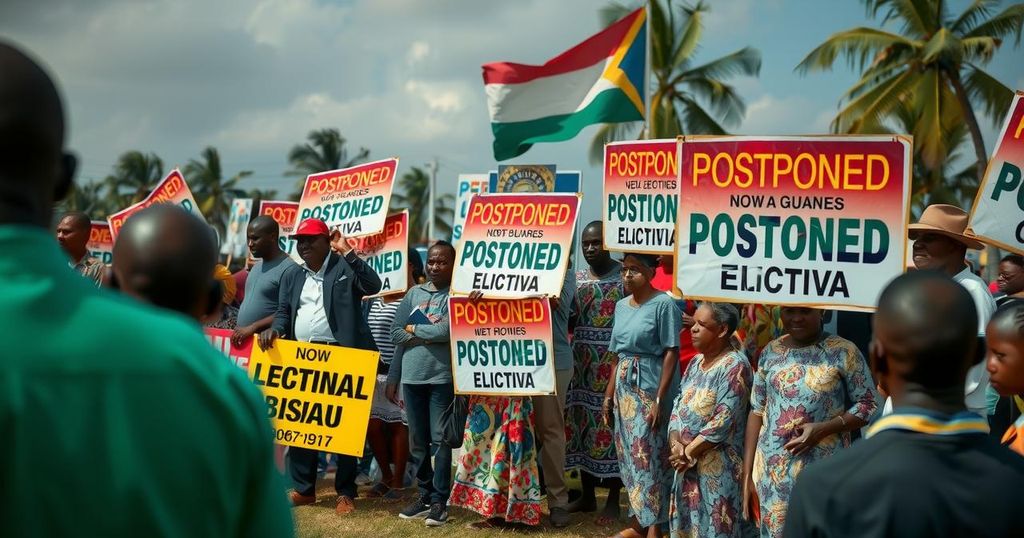Guinea Bissau’s President Umaro Sissoco Embalo indefinitely postponed legislative elections originally scheduled for November 24, citing logistical issues and financial constraints. This postponement reflects ongoing political instability and uncertainty regarding the future of both legislative and presidential elections in the country, which is already grappling with significant governance challenges.
On Monday, Guinea Bissau’s President Umaro Sissoco Embalo announced the indefinite postponement of the legislative elections that were initially scheduled for November 24, further extending the country’s ongoing political instability. This decision follows the president’s prior dissolution of parliament in December 2023, which was a reaction to armed clashes deemed an attempted coup. Recent remarks from Aristides Ocante da Silva, the minister for territorial administration, indicated logistical challenges and financial constraints would hinder the voting process. After indicating plans to formalize the postponement, President Embalo subsequently revoked the decree establishing the election date, as confirmed by his political adviser, Fernando Delfim da Silva. As the uncertainty surrounding the legislative elections looms, similar concerns exist regarding the presidential election to succeed Embalo. The political landscape is marked by a coalition led by the African Party for the Independence of Guinea and Cape Verde (PAIGC), which has held a majority in parliament since June 2023, resulting in a complex dynamic of cohabitation. Guinea Bissau, one of the poorest nations globally, faces significant hurdles in financing its electoral processes. Despite making strides towards constitutional order over the last decade, the country continues to grapple with political turmoil, which has persisted since Embalo’s election in December 2019. The clarity regarding his presidential mandate and the timing of future elections remains highly debated.
Guinea Bissau, a small nation in West Africa, has long been subject to political instability, characterized by a series of coups since gaining independence from Portugal. The political landscape has been complicated by corruption and economic challenges, further exacerbated by the presidency of Umaro Sissoco Embalo. His term has encountered significant opposition from the PAIGC, which holds a parliamentary majority, fostering a challenging environment for governance and decision-making. The postponed elections reflect the broader issues of governance, resource scarcity, and the challenges of maintaining political order in a nation beset by recurrent instability.
In conclusion, the indefinite postponement of the legislative elections in Guinea Bissau highlights the persistent political instability and logistical challenges faced by the government. President Embalo’s recent decision reflects an ongoing struggle to unite a fragmented political landscape while addressing financial constraints that compound the situation. The uncertainty regarding both legislative and presidential elections continues to underscore the volatile nature of Guinea Bissau’s governance.
Original Source: punchng.com






